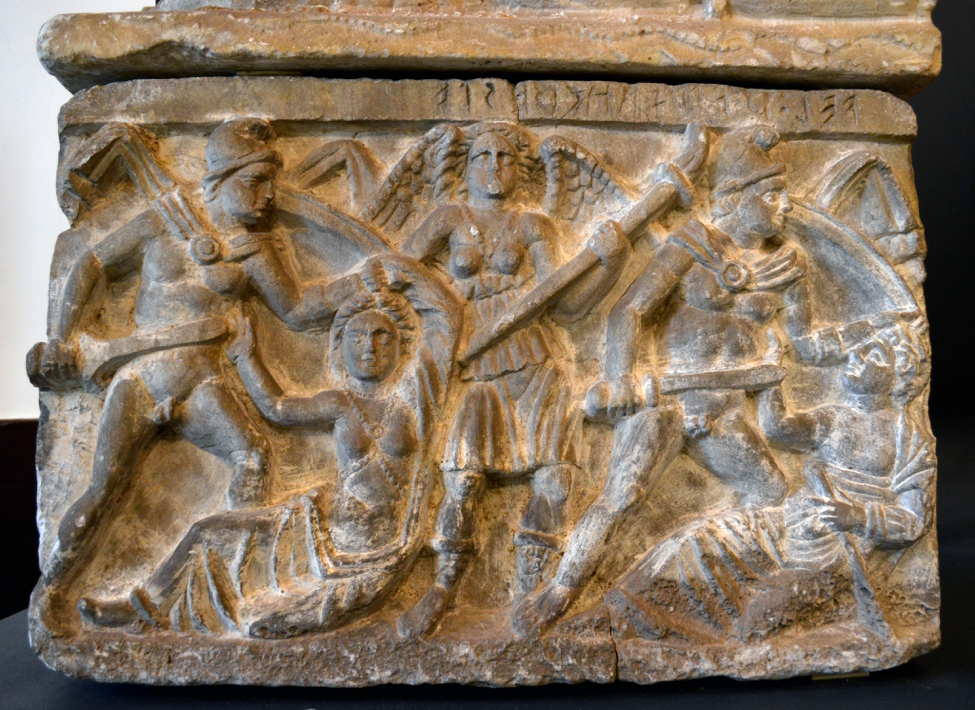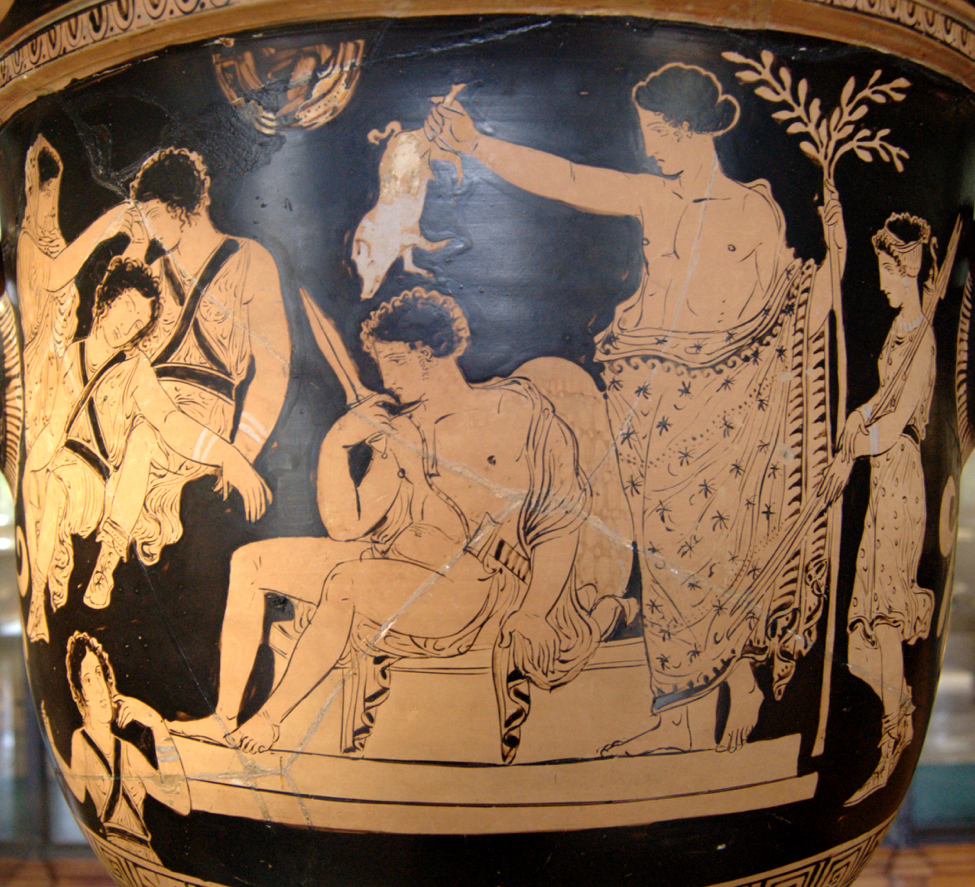The Oresteia – An Introduction
The Oresteia is a cycle of three plays, written by the playwright Aeschylus, about Orestes, the son of Agamemnon. All Greek tragedies were written in trilogies, but this is the only example of a trilogy that still exists. The Oresteia was produced at the Greater Dionysia Festival in 458 BC, where it won first prize.
The Agamemnon
The first play in the trilogy is called the Agamemnon, and it centers around Agamemnon’s homecoming from the Trojan War and his subsequent death at the hands of his wife. In it, Agamemnon has been gone for ten years, and all that time his wife, Clytemnestra, has been angrily plotting her revenge on her husband for sacrificing their daughter, Iphigenia [see Agamemnon and Iphigenia]. Clytemnestra has taken a lover, Agamemnon’s cousin Aegisthus, who also wants revenge on Agamemnon. Clytemnestra has sent her ten-year-old son, Orestes, away so he will not get involved in the intra-familial feud. Aeschylus makes several changes to the story of Agamemnon’s death from the way that it is told in the Odyssey. In the Agamemnon, it is Clytemnestra, not Aegisthus, who kills her husband.
The Libation Bearers
The next play in the cycle is called The Libation Bearers, and it takes place seven or eight years after the death of Agamemnon. Orestes, Agamemnon’s son, now around eighteen, comes back to Mycenae with his cousin, Pylades. Apollo had instructed Orestes to avenge his father’s murder by killing both Clytemnestra and Aegisthus. Orestes has no trouble killing Aegisthus, but it is extremely difficult for him to kill his own mother. Only after Pylades reminds Orestes of Apollo’s command is Orestes finally able to kill Clytemnestra. Agamemnon’s murder has now been avenged, but the fact that Orestes has killed his mother creates a further problem. The Erinyes are female monsters who punish murderers, especially those who have murdered members of their own family. (The Erinyes, known as the Furies in Latin, are depicted as ugly women with snakes for hair. They are thought to have originated from the curses of the person who has been killed.) So now that Orestes has killed his mother, the Erinyes pursue Orestes and start to drive him mad.

The Eumenides
The final play in the trilogy is The Eumenides, a play that also serves as a foundation myth for the Athenian court system. It opens with Orestes, still pursued by the Erinyes, fleeing to Delphi to appeal to Apollo for help, since Apollo sent him to kill his mother in the first place. Apollo cannot send the Erinyes away, but he does make them fall asleep so Hermes can escort Orestes to Athens.

Once in Athens, Orestes appeals to Athena for help, and Athena organizes a trial for Orestes. The goddess presides over the trial with twelve Athenian citizens acting as jury; this is the mythical origin of the jury trial. The vote splits down the middle; six jurors find Orestes innocent and six find him guilty. It is up to Athena to cast the deciding vote, and she votes in favor of Orestes. This is the mythical origin of the Athenian custom that a tied vote is always decided in favor of the defendant. But the Erinyes do not accept the verdict; they still want to punish Orestes for the murder of his mother. Athena convinces the Erinyes to have mercy on Orestes; they also agree to change their name to the Eumenides (meaning “The Kindly Ones”) in return for receiving perpetual honor in Athens.

